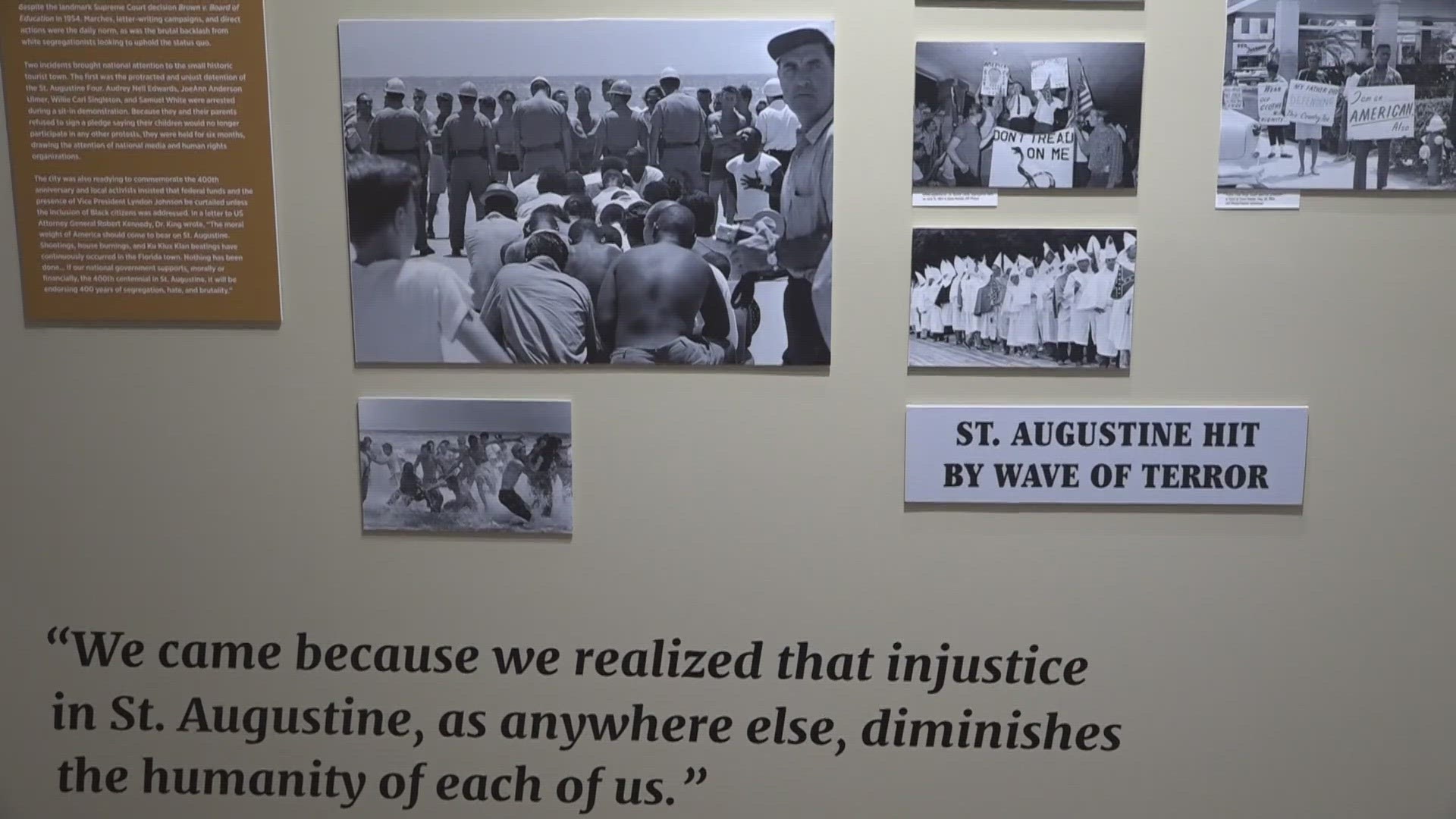ST. AUGUSTINE, Fla. — People are encouraged to visit the Frisch Family Holocaust Memorial Gallery for its latest exhibit, We Could Not Be Silent. The gallery showcases how Jewish leaders were involved in the fight for equal right in the Old City. Gallery curators say the recent acts of hate was one reason behind the presentation. One has probably here the saying "learn your history or be doomed to repeat it". The LJD Jewish Family & Community Services encourages visitors to repeat a portion of history when people worked together in solidarity. In this case, it was the civil rights movement.
It was 1964 in St. Augustine where civil rights activists dared to challenge the status quo of segregation. Segregationists make very well known, Dr. Martin Luther King Jr. was not welcomed in the Old City. Hope McMath, one of the curators of the exhibit, can explain to visitors what obstacles Dr. King faced while in the Sunshine State.
"When Dr. King was arrested here, he had proclaimed St. Augustine was the most racist, most lawless place he'd ever been in." McMath said. "That's significant for a man who spent a lot of time in Jackson, Mississippi and Montgomery and Birmingham, Alabama."
However, Dr. King was not alone in the fight for equal rights. McMath explained how a close friend of the Civil Rights Icon participated. Rabbi Isreal Dresner was a freedom rider and Dr. King called on him to help desegregate St. Augustine. McMath Rabbi Dresner called on 15 other rabbis to demonstrate in St. Augustine. 16 Jewish Clergy marched at the request of Dr. King and demonstrated at the Monson Motor Lodge. Everyone including Dr. King was arrested. It was the largest mass arrest of rabbis in U.S. History. McMath said Rabbi Dresner's contribution was incredibly significant.
"It was that group of 17 people showing up at the Monson Motor Lodge saying you need to serve us alongside our Black activist friends," McMath explained.
History shows Black demonstrators tried to integrate the pool but the owner of the hotel poured acid in the water. A moment that played a role in passing the Civil Rights Act. The We Could Not Be Silent exhibit showcases the letters rabbis wrote to the Jewish community during their stay in jail. Visitors can read their experiences, learn a portion of history that is not largely discussed and leave enlightened.
The exhibit is free and visitors can check it out until Summer of 2024.

